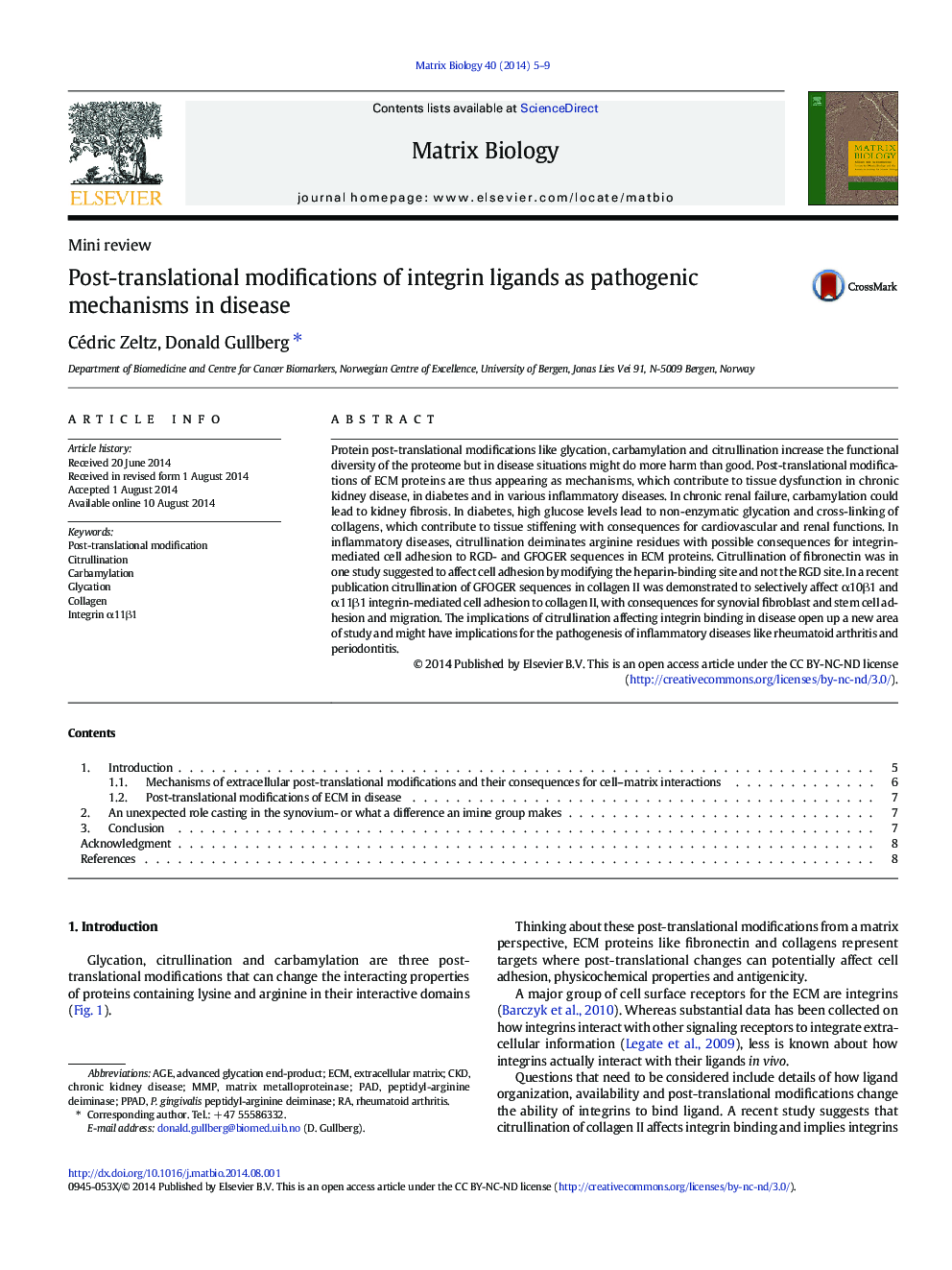| Article ID | Journal | Published Year | Pages | File Type |
|---|---|---|---|---|
| 2144752 | Matrix Biology | 2014 | 5 Pages |
•Glycation, carbamylation and citrullination affect properties of ECM proteins.•We highlight recent data from Sipila et al. (2014) with implications in arthritis.•Posttranslational modifications of cell adhesion sites open up a new field of study.
Protein post-translational modifications like glycation, carbamylation and citrullination increase the functional diversity of the proteome but in disease situations might do more harm than good. Post-translational modifications of ECM proteins are thus appearing as mechanisms, which contribute to tissue dysfunction in chronic kidney disease, in diabetes and in various inflammatory diseases. In chronic renal failure, carbamylation could lead to kidney fibrosis. In diabetes, high glucose levels lead to non-enzymatic glycation and cross-linking of collagens, which contribute to tissue stiffening with consequences for cardiovascular and renal functions. In inflammatory diseases, citrullination deiminates arginine residues with possible consequences for integrin-mediated cell adhesion to RGD- and GFOGER sequences in ECM proteins. Citrullination of fibronectin was in one study suggested to affect cell adhesion by modifying the heparin-binding site and not the RGD site. In a recent publication citrullination of GFOGER sequences in collagen II was demonstrated to selectively affect α10β1 and α11β1 integrin-mediated cell adhesion to collagen II, with consequences for synovial fibroblast and stem cell adhesion and migration. The implications of citrullination affecting integrin binding in disease open up a new area of study and might have implications for the pathogenesis of inflammatory diseases like rheumatoid arthritis and periodontitis.
